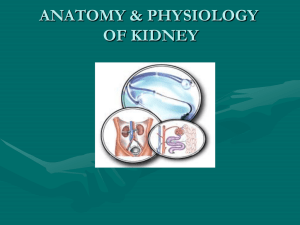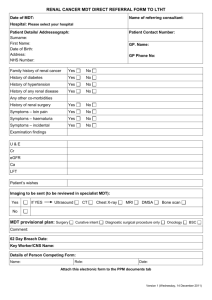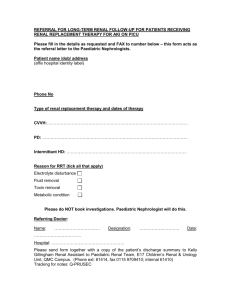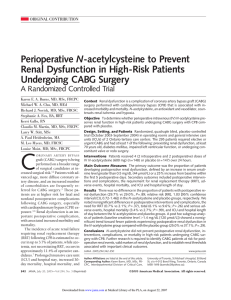University of Baghdad
advertisement
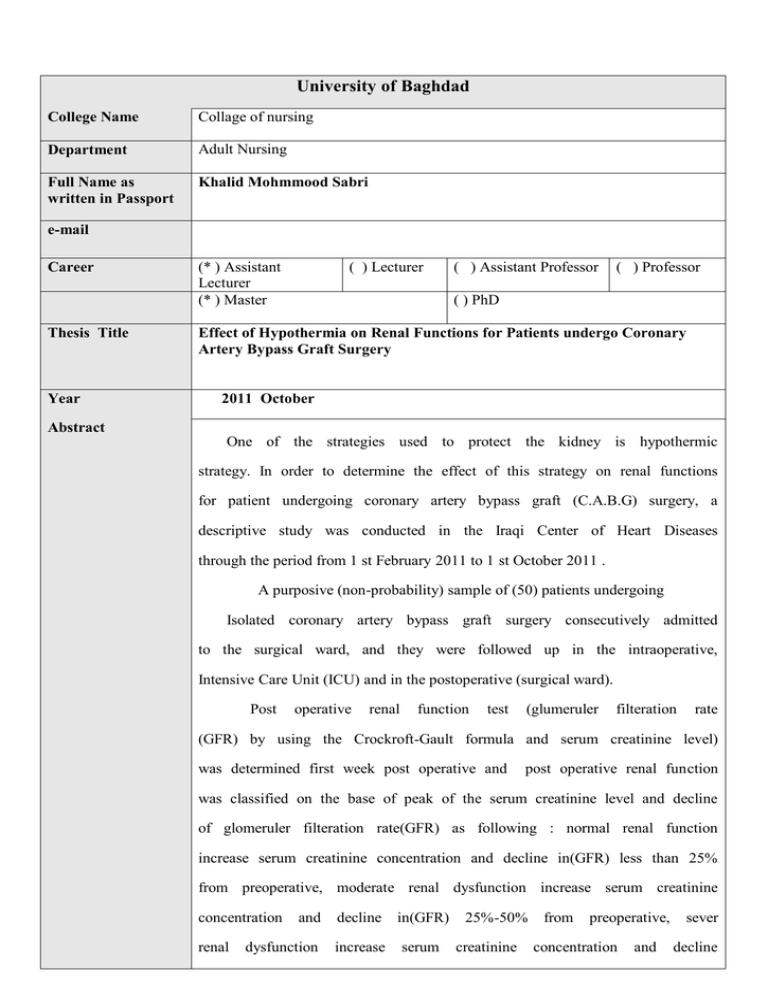
University of Baghdad College Name Collage of nursing Department Adult Nursing Full Name as written in Passport Khalid Mohmmood Sabri e-mail Career Thesis Title Year (* ) Assistant Lecturer (* ) Master ( ) Lecturer ( ) Assistant Professor ( ) Professor ( ) PhD Effect of Hypothermia on Renal Functions for Patients undergo Coronary Artery Bypass Graft Surgery 2011 October Abstract One of the strategies used to protect the kidney is hypothermic strategy. In order to determine the effect of this strategy on renal functions for patient undergoing coronary artery bypass graft (C.A.B.G) surgery, a descriptive study was conducted in the Iraqi Center of Heart Diseases through the period from 1 st February 2011 to 1 st October 2011 . A purposive (non-probability) sample of (50) patients undergoing Isolated coronary artery bypass graft surgery consecutively admitted to the surgical ward, and they were followed up in the intraoperative, Intensive Care Unit (ICU) and in the postoperative (surgical ward). Post operative renal function test (glumeruler filteration rate (GFR) by using the Crockroft-Gault formula and serum creatinine level) was determined first week post operative and post operative renal function was classified on the base of peak of the serum creatinine level and decline of glomeruler filteration rate(GFR) as following : normal renal function increase serum creatinine concentration and decline in(GFR) less than 25% from preoperative, moderate renal dysfunction increase serum creatinine concentration renal and decline in(GFR) dysfunction increase serum 25%-50% creatinine from preoperative, concentration and sever decline in(GFR) more than 50% from preoperative test. A questionnaire was constructed for the purpose of the study and composed of three parts: 1-preoperative data which included gender, age, smoking, living with smoker person, alcohol drinking, hypertension, diabetes mellitus (DM), preoperative renal dysfunction, kidney surgery, cardiac surgery, ejection fraction, New York Health Association (NYHA) classification of duration surgery, of heart disease. 2-Intraoperative cardiopulmonary bypass data (CPB) which time, included cross-clamp time, core temperature, total fluid intake, total urine output, Intra Aortic Balloon Pump (IABP). 3-Post operative data which included total fluid intake, total urine output and IABP. Reliability and validity of the questionnaire form were determined through a pilot study while the content validity of the questionnaire was determined through a panel of experts. The data was collected through the application of the questionnaire, the interview technique, observation and the patient's sheets. The data were analyzed through the descriptive data analysis approach by using statistical package of social science (SPSS). The results of this study show that (78%) from the sample develop post operative renal dysfunction and a height percentage of them are male (50%), advance age 60-70 (60%), smoking (47.0%), diabetes mellitus (68%), cardiopulmonary bypass 180 minute and more (57.20%), NYHA class III(47.5%) and patient without IABP(50,0%). We conclude from the study that highly percentage of patient undergoing isolated CABG may develop postoperative renal dysfunction even when using hypothermic strategy as a protective measure and the patients with DM, male, advance age, smoker, prolong time of CPB, NYHA class III and patient without IABP are considered as patient at high risk to develop postoperative renal dysfunction. The investigator recommended that to find addition strategy rather than hypothermia to protect renal function especially with the high risk patients during isolated CABG surgery.

